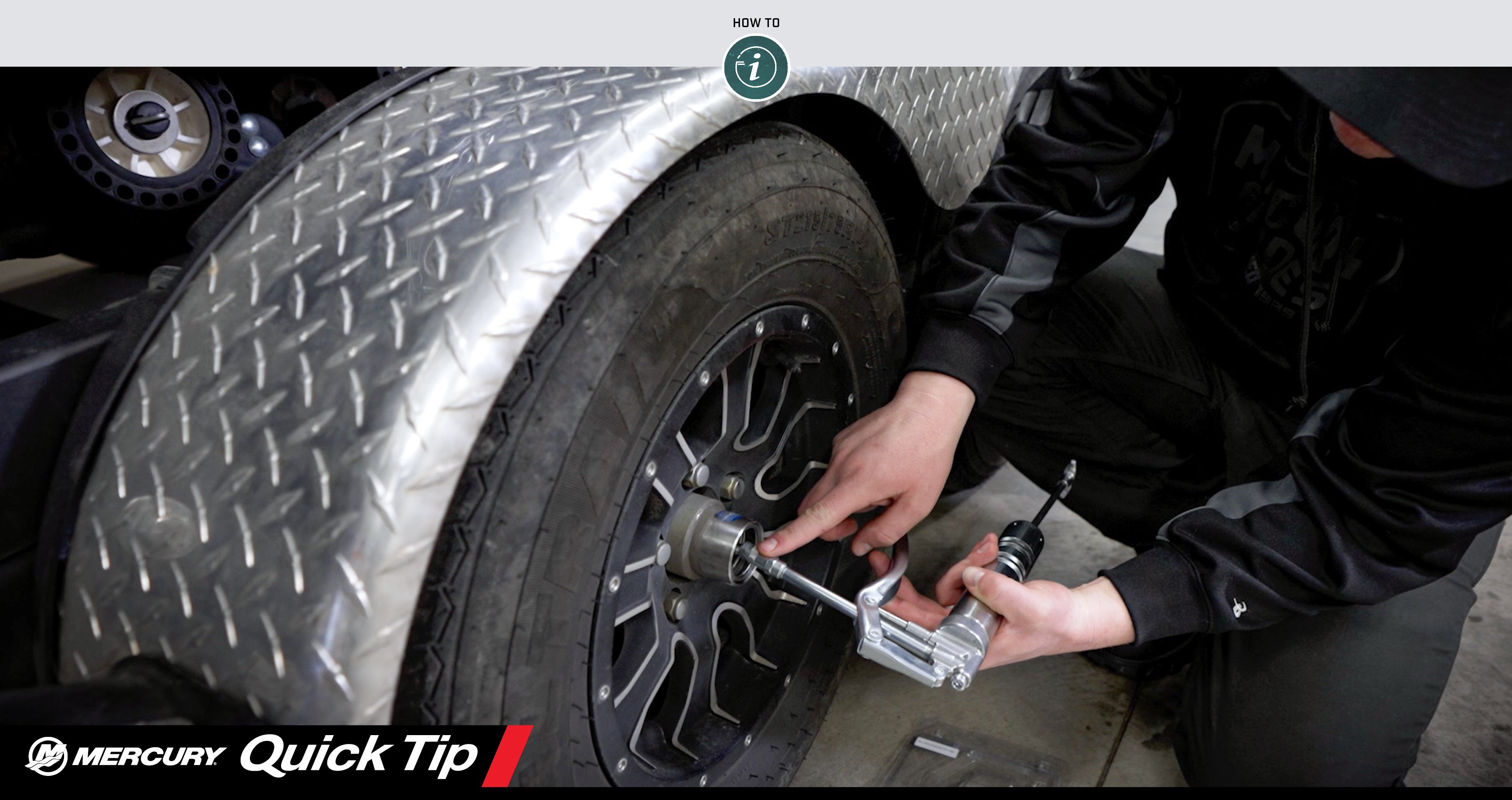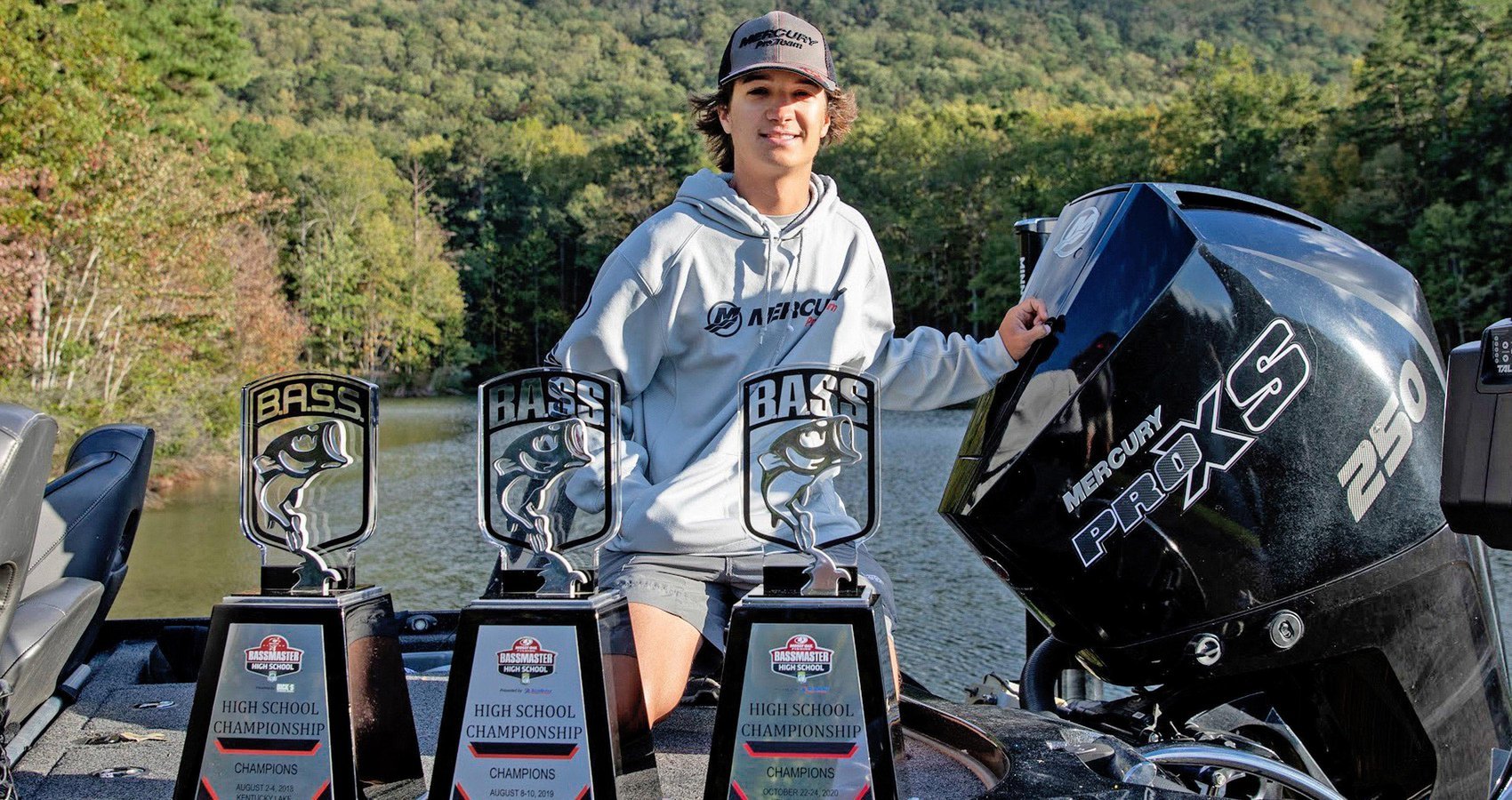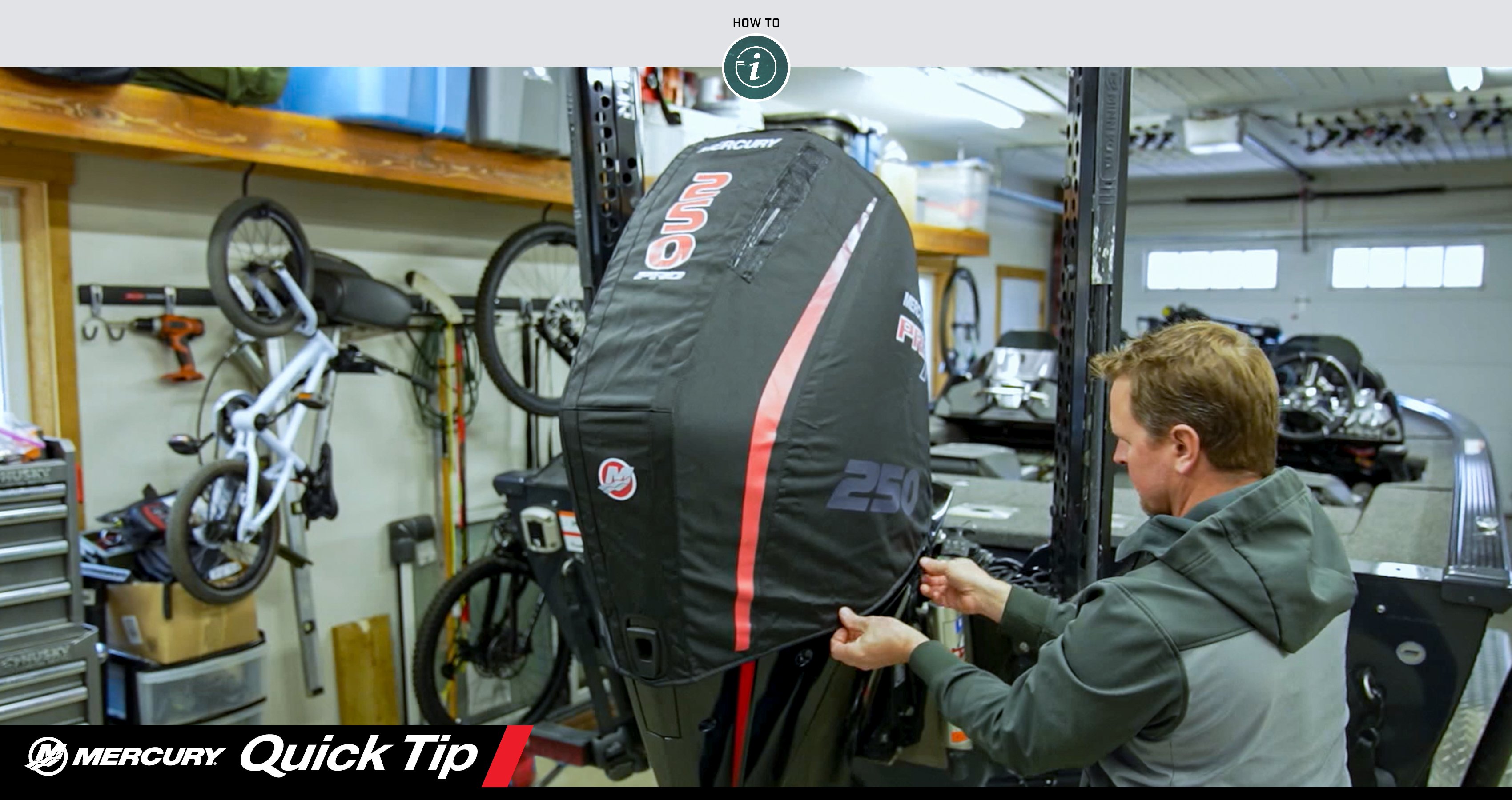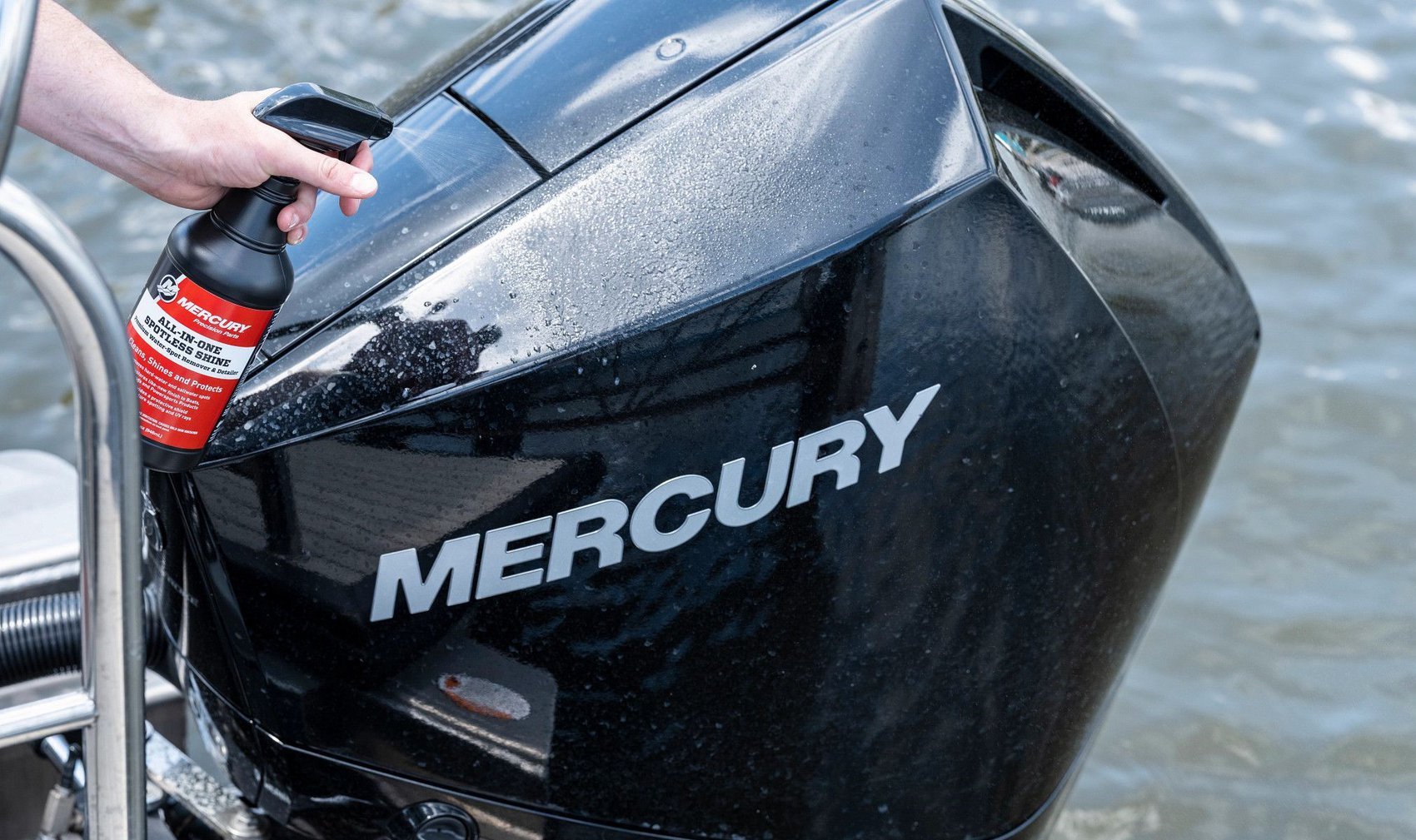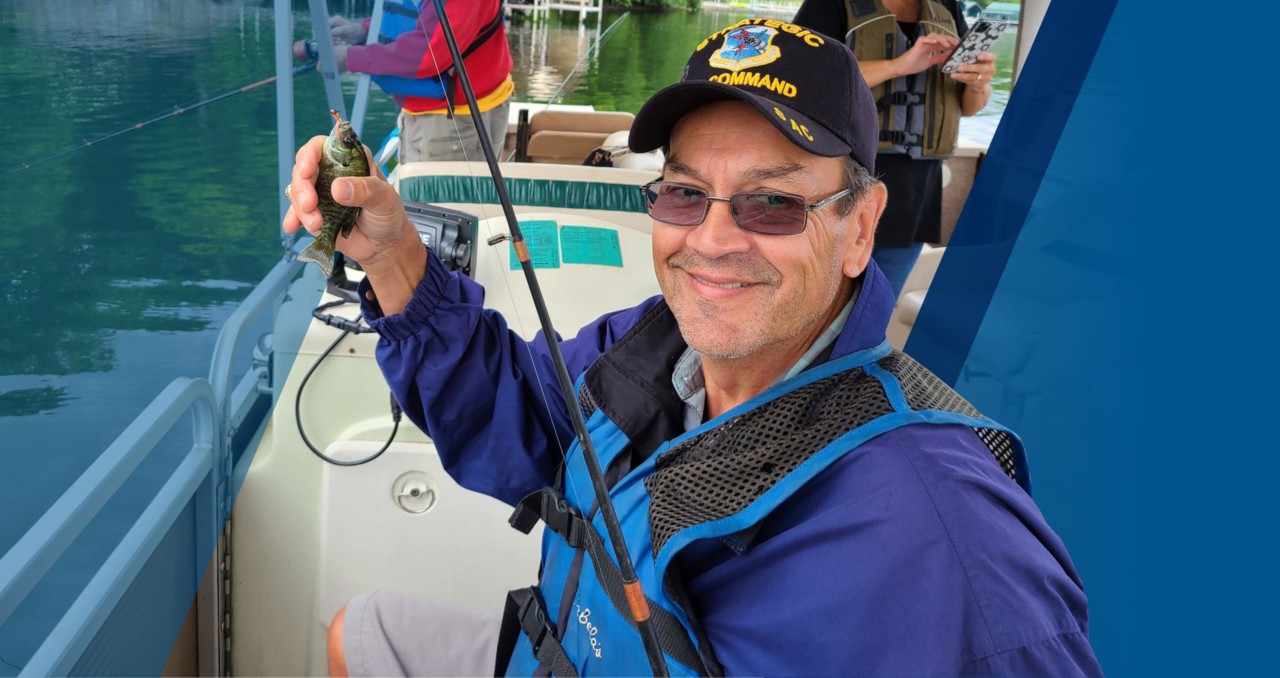A lot of us say it. To the camouflaged young soldier we pass in the airport, or maybe the older gentleman in the black World War II service cap you see when you visit your grandmother in the nursing home. And we mean it. We might even buy their coffee or offer to let them go to the front of the line at the grocery store.
After all, they have risked or are currently risking life and limb to keep us and countless others around the world free and safe.
But there are a few whogo well beyond a cup of coffee or a kind word to honor our United States veterans. The volunteers who give their time and energy to the Let’s Go Fishing (LGF) organization are among those who go the extra mile to honor our veterans, as well as serve the elderly and handicapped in their communities.
LGF was established in 2002 by Joe and Carolyn Holm in Willmar, Minnesota. The idea was simple and pure: Help make the lives of local senior citizens just a little bit better by taking them fishing and boating. The outings would be staffed by volunteers and completely free.
Today, LGF serves not only the elderly, but also the disabled, hospice patients, youth and veterans of all ages of our armed forces. The organization now has 17 chapters – 16 across the state of Minnesota and one in Rhinelander, Wisconsin – comprised of some 1,500 volunteers. It has hosted more than 200,000 people, about 10 percent of which are veterans, since that first trip 19 years ago, and has done so while receiving virtually no government funding. LGF is wholly supported by corporate sponsorships and private donations; everything from boats and fuel to tackle and bait is either donated or purchased with donated money.
The veterans who go fishing with LGF get connected with the organization by way of local Veterans of Foreign Wars (VFW) posts, American Legion posts, Veterans Administration (VA) facilities and conventional civilian nursing homes and assisted living facilities.
Darci Mohr began working for LGF in 2014 and now serves as operations director for the LGF Central Office. With a degree in mass communications from Minnesota State University – Moorhead she was initially brought in to help market the organization, but eventually took over as the leader of LGF. And lest you think that the donations go toward lavish offices and executive salaries, she’s quick to point out she’s LGF’s lone paid employee.
“And it’s one of three jobs I have!” she laughed.
The typical chapter has one specially built tritoon – sometimes two – and all LGF boats are powered by Mercury Outboards, Mohr said. The boats are from various manufacturers, specially built to accommodate the need to safely board and carry wheelchair-bound guests and people with all manner of physical limitations. Mercury Marine is one of 11 national LGF sponsors, offering support in the form of discounts on the engines, parts and accessories that help keep boats on the water and the guests reliably transported every single outing.
Schedules vary from chapter to chapter, but the flagship chapter in Willmar typically runs two boats at a time doing two-hour trips, twice a day, three days a week from May through September, Mohr said. No matter the chapter, each boat is staffed by a captain and co-captain, who are trained to safely convey and assist the guests in boarding, fishing, moving around the boat and the like. When space is available, or in special situations such as hospice patient outings, family members ride along as well.
For the guests, the process is simple: sign up, show up and go fishing. Or just sit and enjoy the fresh air, sunshine and the company of new people, such as volunteer Chuck Loso. Loso, 70, is retired from the Minnesota Department of Transportation, and during the boating season he often spends two to three days a week assisting with LGF outings on Green Lake, the home waters of the Willmar chapter. As a veteran himself, the 10-year volunteer seeks out fellow service members and works to make their day as enjoyable as possible.
“(LGF) gives them a chance to get out of their room, and get out in the air and on the water again,” Loso said. “When Let’s Go Fishing decided they wanted to work with the VA, I jumped on that right away. Those guys are something else, and from every branch of service. You get to talking to them and they start telling stories about their service, and then you start telling them about yours. It’s really great; it makes you feel proud that they get to talk to somebody about it.”
Loso said the veterans he’s assisted on LGF trips have ranged from early 20s Iraq vets to a 98-year-old man who served in World War II. And he’s got plenty to share: Loso completed six years of active duty in the United States Army, including a year guarding the Demilitarized Zone (DMZ) that separates North Korea from South Korea, one of the most heavily fortified borders in the world, as well as three and a half years in then-West Germany in the height of the Cold War.
A frequent passenger on the Alexandria, Minnesota, chapter’s boats is 95-year-old John Freeman, who lives in the city’s Grand Arbor senior living facility – in the assisted living section, not the nursing home, he’s quick to point out. Freeman grew up on a farm in southern Minnesota then served in the U.S. Army during World War II. He spent the war at Fort Riley, Kansas, because his two brothers were already serving overseas, he said. The United States Armed Forces had enacted protocols to try to avoid multiple siblings being killed in action after the five Sullivan brothers died aboard the same ship in 1942.
Freeman’s oldest brother was a driver for legendary General George Patton in North Africa and Italy but was tragically killed just before the end of the war. Freeman’s immediately older brother was a U.S. Marine serving in the Pacific and was on his way to Wake Island, one of the bloodiest battles of the war, when a random set of circumstances caused his ship to be diverted before the battle. The Freeman family spent 11 agonizing months with their son listed as unaccounted-for before learning that he was alive and well.
“Luckiest day of my life,” Freeman said of the day he was told he was staying at Fort Riley. “My group went to the Battle of the Bulge, and only one person that I knew made it back.”
Freeman signs up for LGF outings whenever they’re offered, and he marvels at the time and effort the volunteers put in to take him and so many others fishing.
“It’s a pretty neat thing (LGF) is doing, and I appreciate all the folks that are volunteering to do it,” Freeman said. “I really do enjoy it.
Laura Kremer, the activity director at Grand Arbor, said LGF is a tremendous resource for her residents not just for the outing itself, but for what it represents.
“We are in the heart of lake country in Minnesota, so a lot of our residents either grew up living on a lake or near lake or vacationing at a lake,” she said. “So being on the water if you're fishing or just on the boat holds a lot of memories to folks in this area and it’s really a part of their identity in many cases. That Let's Go Fishing was able to connect people to that is so, so meaningful.
“Seeing people smell the water or feel a splash coming up over the front of the boat, you can just see them taking a step back in their memories. Yeah, it's very therapeutic.”
Kremer said she offers LGF outings to all her residents as much as she can and has a tremendous appreciation for the way the volunteers take care of the guests.
“I almost can't even put into words how amazing it is for me as an activity director to know that all I have to do is get my folks to the lake and (the volunteers) take care of the rest,” she said. “They help the residents get off the bus, they help them get their life jackets on, get them down to the dock and on the boat. They removed the logistical barriers of physically getting people who are in wheelchairs, like John, on the boat, and they made it seamless and easy. And there’s no cost barrier because it’s free.”
\Gordy Botcher lives in the Minnesota Veterans Home – Minneapolis, on the banks of the Mississippi River. Botcher entered the United States Marine Corps in 1969 as a 21-year-old with two years of college under his belt. He started in California and was soon in Vietnam in the role of field radio operator.
He was discharged upon his return to the U.S. in 1970. After that, Botcher spent 35 years in sales before going into construction and renovation, retiring in 2016 and moving into the Veterans Home in 2018. Since then, he’s enjoyed LGF outings on Lake Riley with the Eden Prairie chapter.
“It’s a lot of fun,” Botcher said. “I’ll be honest with you; I could care less if I catch a fish or not. Sometimes we go in the morning and then eat lunch at the lake afterward, and sometimes we go in the afternoon and eat lunch there before we go fishing. It’s just a very enjoyable time.”
“It’s not about catching a bunch of fish.”
Botcher said the volunteers are what make fishing with LGF such an enjoyable experience.
“They’re very, very cordial people – they really seem to care about you,” he said. “They want to hear about you. They’re not there bragging about themselves or anything like that. And they ask you like ‘Where did you grow up?’, ‘What did you do?’ It’s just a caring bunch of people to be around and a nice outing.
Of course, having a variety of veterans all together on a boat for a couple of hours allows plenty of time for some good-natured ribbing.
As Botcher puts it, “The Marines give it to the Navy, and the Navy gives it to the Army and whatnot. Like they say, the Army hates the Navy, and the Navy hates the Air Force, and the Marines hate everybody.”
Joe Cloud, 68, is a friend and fellow resident of the Minnesota Veterans Home with Botcher. He entered the United States Navy in 1971, serving three years of active duty, including a stint in Vietnam as a gunner’s mate and postal clerk. His duties included serving as a door gunner on helicopters making mail runs to the troops on the ground.
When Cloud, now 68, learned about LGF he signed up immediately.
“I’ve gone just about every time it’s offered … It’s very enjoyable,” he said. “The camaraderie and the banter amongst ourselves and the crews is really great. I’ve actually fished that lake before I was here (in the Veterans Home), so I was familiar with it. It’s a fun lake to be on, for sure.”
Like Botcher, Cloud’s pride in his branch of service still shines bright, and he won’t miss an opportunity to tease the vets from the other branches.
“If it wasn’t for us Navy guys labeling their utensils when we picnic there at the lake (the Marines would) starve to death,” he joked. “No, we all get along just great; all in good fun.
“Basically, if you don’t like fishing and you’re just there, it’s still really enjoyable and it’s very much appreciated. It’s definitely nice just to be out on the water and taking in the sights.”
Loso, the volunteer from Willmar, said he sometimes gets asked if he and the others manning the boats are getting a paid for their time.
“They’ll say something like ‘It’s really nice of you guys to take us out fishing, do you get paid for this?’” Loso said. “I tell them: ‘Well, in a way. When we get to see a smile on your face and get to talk to you out here on the boat, that’s all we need.’”
To learn more about Let’s Go Fishing, to donate or to find out how you can help set up a chapter in your area, click here.
